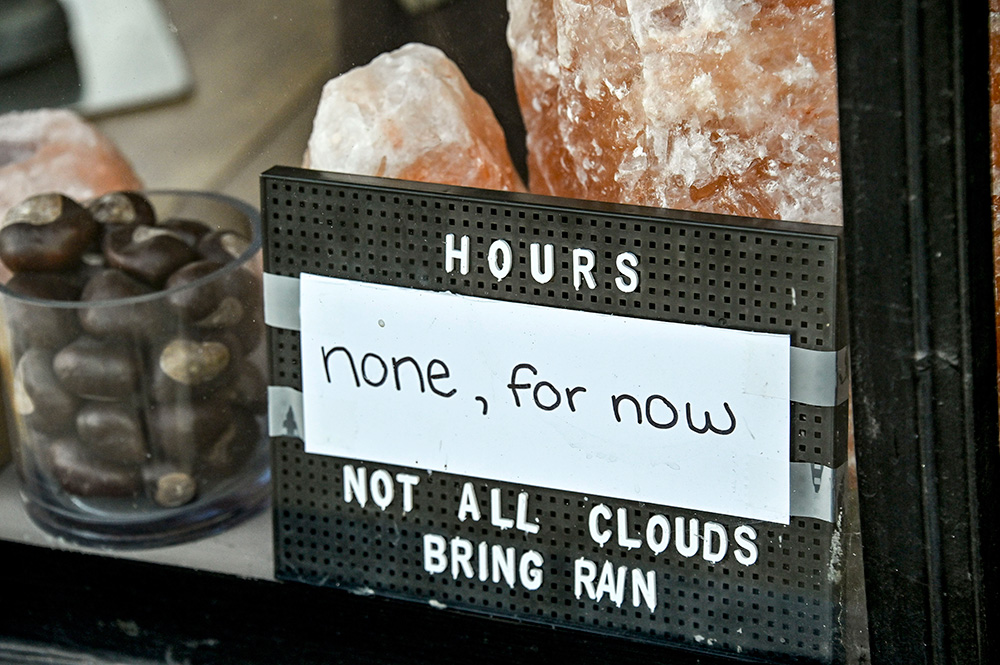B.C. hospitals will likely be overwhelmed in a matter of weeks as the rapidly spreading Omicron variant accounts for at least 80 per cent of the more than 3,000 cases confirmed each day, health officials said today.
But despite being in a “different storm now,” provincial health officer Dr. Bonnie Henry said she doesn’t plan to issue further public health restrictions.
“I've said many times that I want to get out of the order business,” she said during a public briefing.
When pressed on this statement by a reporter, Henry said public health orders are a “last resort” and her job is to minimize disruption to health care and the economy.
Businesses should be making contingency plans based on up to 30 per cent of employees being unable to work due to COVID-19, Henry said.
Schools have been asked to come up with similar plans for large numbers of teachers and staff unable to work, she added.
Employers should also be ensuring COVID plans are in place around distancing and PPE, Henry said. “Anyone who can work from home, you should be able to do that.”
B.C. has now blown by the worst-case scenario it modelled for Omicron in early December. That predicted 2,000 cases per day and overwhelmed hospitals by mid-January.
On Monday the province reported 9,332 new cases over the previous three days.
The province’s testing system has also been overwhelmed by the sheer number of people with symptoms and exposures, meaning the daily case rate is likely four to five times less than the true number of new cases, officials said last week.
And the number of COVID-19 hospitalizations and patients in intensive care have begun to creep up, with 220 people hospitalized and 73 in intensive care as of the most recent report on Friday.
While Omicron is relatively milder than the Delta variant, it still has the potential to cause serious illness among the elderly and those who are unvaccinated in particular.
And its increased transmissibility and short incubation period means it will overwhelm the health-care system even if it sends a smaller proportion of patients to hospital than Delta did.
In Ontario, Premier Doug Ford said the province was “bracing for impact” on hospitals as he announced new restrictions on indoor dining, capacity in retail spaces, indoor gatherings and a two-week delay for in-person school to resume after the holiday break.
Like B.C., Ontario has also cancelled thousands of scheduled surgeries, including some cancer and heart procedures, as well as joint replacements and gender-affirming surgeries.
When asked how B.C. is preparing for the influx of patients, Henry said it may include asking health-care workers to work longer shifts, return from vacation early and reduce other non-emergency activities.
“We’ve been stretched, we’ve been stretched prior to the pandemic and people have been stretched to the limit and beyond in the last two years,” Henry said of the health-care system.
But there are no signs that B.C.’s fifth wave is slowing or reaching a peak, or indications that it will without further intervention.
Henry said today her central concern was keeping children safely in schools, which she said haven’t shown to be major sources of transmission.
“We know that schools are safe. They’re the best and safest place for children. And they’re essential,” said Henry, who also advised high-risk children to opt out of extra-curricular activities for the time being.
Henry stressed the importance of staying home when feeling unwell, wearing a good mask outdoors and limiting one’s personal contacts as much as possible.
And she encouraged British Columbians to book their booster shots, which show a nearly 30-per-cent boost in protection from serious illness from Omicron, as soon as they are eligible.
“A year ago we faced challenges and yet we had the hope and promise of vaccines for all of us,” she said.
“We all may be weary but we can take encouragement from what will be brighter days ahead.” ![]()
Read more: Coronavirus, BC Politics
















Tyee Commenting Guidelines
Comments that violate guidelines risk being deleted, and violations may result in a temporary or permanent user ban. Maintain the spirit of good conversation to stay in the discussion.
*Please note The Tyee is not a forum for spreading misinformation about COVID-19, denying its existence or minimizing its risk to public health.
Do:
Do not: